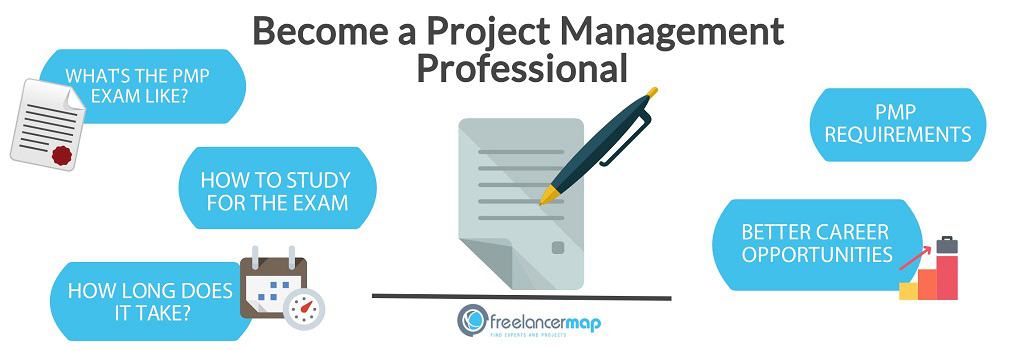How do I prepare for a project management PMP exam?

Table of Contents
The Project Management Professional (PMP) exam is one of the most important exams you will take as a project manager. It is administered by the Project Management Institute (PMI) and is used to certify project managers around the world. The PMP exam is not easy, but it is possible to pass with flying colors if you are prepared. In this blog post, we will give you some tips on how to prepare for the PMP exam so that you can ace it and get your certification.
Table of Contents
You can learn more about it here: look at this certification exam
How do I prepare for a project management PMP exam?
To prepare for a Project Management Professional (PMP) exam, you will need to complete an application and submit it to the Project Management Institute (PMI) for review. Once your application has been approved, you will need to register for the exam and pay the exam fee.
You will then need to schedule a time to take the four-hour-long exam at a testing center. It is recommended that you give yourself at least six weeks to study for the exam. There are a variety of resources available to help you prepare, including books, online courses, and practice exams.
Once you have registered for the exam, you will be given access to the PMP Exam Candidate Handbook, which outlines everything you need to know about taking the exam. It is important that you read through this handbook thoroughly so that you understand the format of the exam and what is expected of you.
On the day of the exam, you will be required to bring two forms of identification with you to the testing center. The first form must be a government-issued photo ID, such as a driver’s license or passport. The second form can be either an employee ID card or a credit card. You will also need to bring two #2 pencils and an eraser with you on test day.
What Is the Project Management Professional (PMP) Exam?
The Project Management Professional (PMP) Exam is an industry-recognized credential that demonstrates an individual’s ability to effectively manage projects. The PMP credential is widely recognized and sought after by employers and is a valuable addition to any project manager’s toolkit.
To earn the PMP credential, candidates must first meet the eligibility requirements, which include having a minimum of 4,500 hours of project management experience and an undergraduate degree (or equivalent). Candidates then must pass the four-hour PMP Exam, which consists of 200 multiple-choice questions.
The PMP Exam covers a wide range of topics related to project management, including project initiation, planning, execution, monitoring and control, and closure. Candidates are expected to demonstrate their knowledge and understanding of these topics in order to successfully pass the exam.
Preparing for the PMP Exam can be a daunting task, but there are many resources available to help candidates get started. The Project Management Institute (PMI) offers a variety of study materials and practice tests, as well as an online course that covers all of the topics covered on the exam. In addition, many colleges and universities offer project management courses that can help candidates prepare for the exam.
Who Takes the PMP Exam?
The PMP exam is taken by those who wish to become certified Project Management Professionals. The exam is designed to test one’s knowledge of the project management process, as well as their ability to apply that knowledge to real-world situations.
To be eligible to take the exam, candidates must have a minimum of four years of project management experience, and a bachelor’s degree (or equivalent). They must also complete 35 hours of project management education.
Once candidates have met these requirements, they can register for the exam with the Project Management Institute (PMI). The exam consists of 200 multiple-choice questions, and candidates have four hours to complete it.
How to Prepare for the PMP Exam
The first step is to understand the PMP Exam Format. There are five sections to the exam:
- Initiating the Project
- Planning the Project
- Executing the Project
- Monitoring and Controlling the Project
- Closing the Project
Each section has a series of multiple-choice questions that test your knowledge of project management concepts. You will need to answer all questions in each section correctly to pass the exam.
To prepare for the exam, it is important to first review the PMP Exam Content Outline, which outlines what topics will be covered on the exam. Next, create a study plan that includes a schedule of when you will study each topic and practice answering questions. Finally, take practice exams to assess your understanding of the material and identify areas where you need further study.
Preparing for the PMP learn more: project management test questions and answers
Tips for Studying for the PMP Exam
There are a few things to keep in mind when studying for the PMP exam:
- Make sure you understand the PMP Exam format and what is covered on the test. There are a lot of resources available online and from the Project Management Institute (PMI) to help with this.
- Create a study schedule and stick to it. It is important to set aside time each day or week to study so that you can stay on track and not get overwhelmed.
- Use practice exams to your advantage. Taking practice exams can help you identify areas where you need to focus your studies, and also get comfortable with the format of the actual exam.
- Get plenty of rest and exercise leading up to the exam date. This will help ensure that you are physically and mentally prepared for the exam day.
